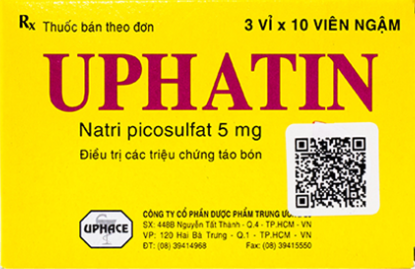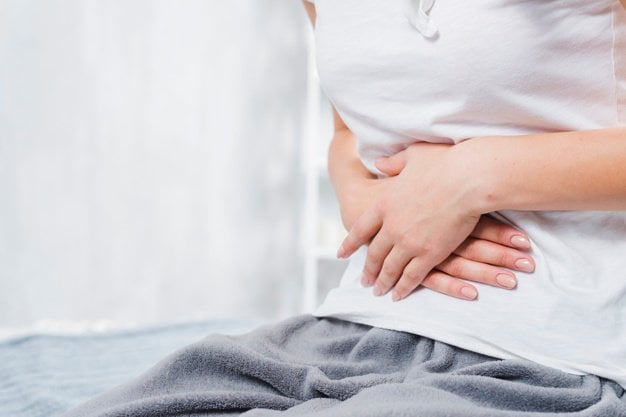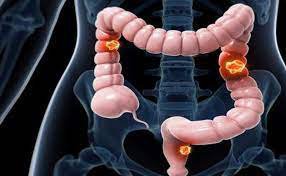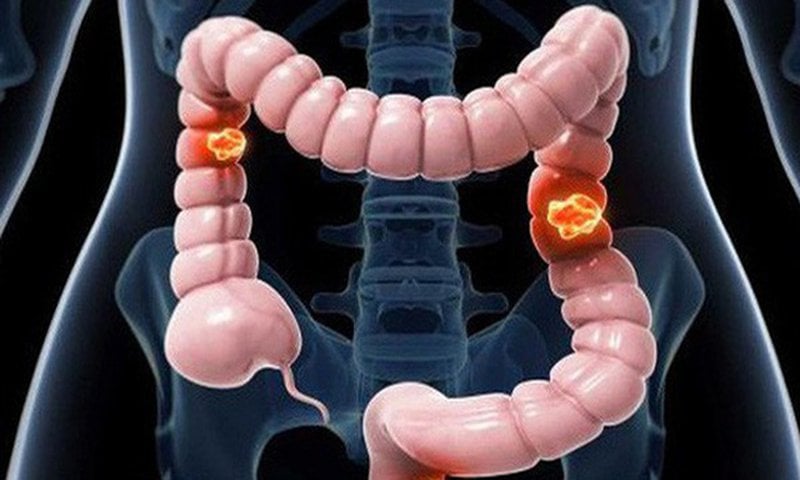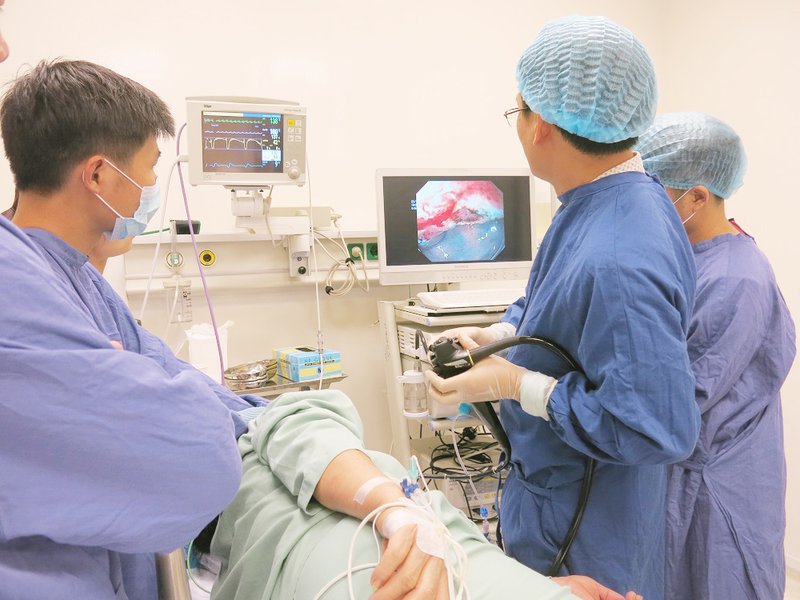What to eat after colon surgery?
This is an automatically translated article.
Colectomy is a surgery to remove part of the large intestine that is blocked or diseased. After surgery, there are foods you should and shouldn't eat. Certain foods can irritate your intestines or make side effects from surgery worse. Here's a guide to your diet for some time after surgery.
1. What is colon surgery?
Colectomy is a surgical procedure to remove all or part of your intestines. The colon, part of the large intestine, is a long tube-like organ at the end of your digestive tract. Removal may be needed to treat or prevent diseases and conditions that affect your colon.
There are many types of surgical resection:
Total resection is the removal of the entire colon. Partial resection is the removal of part of the colon. Tumor resection is the removal of the right or left side of the colon. Prostatectomy involves removing both the colon and rectum. Surgical removal often requires other procedures to reattach the rest of the digestive system and allow waste to leave the body.
Colon polyps are small tumors on the inner lining of the large intestine (colon) or rectum. Intestinal polyps are very common, affecting about one in four people age 50 and older. They are more common in men.
There are many types of surgical resection:
Total resection is the removal of the entire colon. Partial resection is the removal of part of the colon. Tumor resection is the removal of the right or left side of the colon. Prostatectomy involves removing both the colon and rectum. Surgical removal often requires other procedures to reattach the rest of the digestive system and allow waste to leave the body.
Colon polyps are small tumors on the inner lining of the large intestine (colon) or rectum. Intestinal polyps are very common, affecting about one in four people age 50 and older. They are more common in men.
2. Foods to eat after colon surgery
2.1. Nutrition after surgery For the first 2 to 3 days after surgery, you'll probably only receive intravenous fluids to give your colon time to heal. You will then be switched to a liquid diet for a period of time. This means that you can only eat liquids such as porridge, fruit juices without pulp (e.g. apple juice), soft drinks and gelatin.
When you are ready to start eating solid foods again, the first food you eat should be easily digestible; such as toast and oatmeal or rice.
2.2. Some foods to eat after colon polyp surgery Some common symptoms you may experience after surgery include diarrhea and dehydration. These symptoms may occur because your colon has not yet returned to normal function. One of the functions of the intestines is to absorb fluids. If it doesn't work properly, you can experience diarrhea and dehydration.
When you are ready to start eating solid foods again, the first food you eat should be easily digestible; such as toast and oatmeal or rice.
2.2. Some foods to eat after colon polyp surgery Some common symptoms you may experience after surgery include diarrhea and dehydration. These symptoms may occur because your colon has not yet returned to normal function. One of the functions of the intestines is to absorb fluids. If it doesn't work properly, you can experience diarrhea and dehydration.
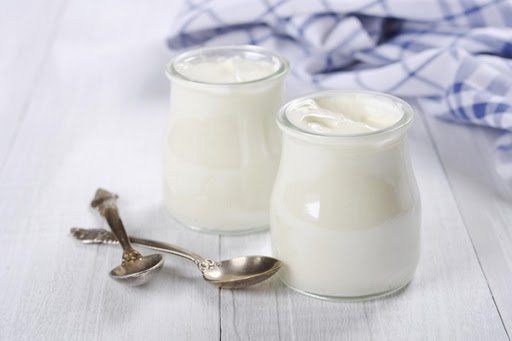
Sữa chua có thể giúp bạn giảm thiểu tiêu chảy - triệu chứng có thể gặp sau phẫu thuật cắt bỏ polyp đại tràng.
Foods that are easy to digest and can help minimize diarrhea include:
Apples, bananas, pears, peaches and melons. Rice. Cooked beets, spinach. White bread or toast. Cream of rice or cream of wheat. Low-sugar cereals (avoid high-fiber cereals like wheat bran). The pasta. Peanut butter. Potato. Yogurt. Other easy-to-find, low-residue soft foods include eggs, cooked fish or tender meats, light cheeses, soft cooked fruits or vegetables, puddings, and ice cream.
Apples, bananas, pears, peaches and melons. Rice. Cooked beets, spinach. White bread or toast. Cream of rice or cream of wheat. Low-sugar cereals (avoid high-fiber cereals like wheat bran). The pasta. Peanut butter. Potato. Yogurt. Other easy-to-find, low-residue soft foods include eggs, cooked fish or tender meats, light cheeses, soft cooked fruits or vegetables, puddings, and ice cream.
3. Foods people should avoid after colon surgery
3.1. Avoid chewy and crunchy foods You should be able to drink water right after the bowel resection. A few days later, you can start solids. Your doctor may ask you to start with soft foods like cooked vegetables, bananas, avocados, mashed potatoes, and soft protein. Your intestines may swell after surgery and these foods will pass through them more easily. Therefore, chewy and crunchy foods should be avoided.
3.2. Limit fiber Your stomach doesn't fully digest high-fiber foods like whole-grain breads and cereals. They go to the colon and are “taken care of” there. Your colon is in the process of healing, so don't overwork it. A low-fiber diet (your doctor may call it “low-residue”) for 4 to 6 weeks may help.
Uncooked fruits and vegetables are high in fiber. They can be crunchy (like carrots) or chewy (like celery) and difficult to chew into small pieces. They can have hard skins (like apples) or hard-to-digest seeds. All of that can irritate your large intestine as it heals. Avoid these foods for a few weeks as you recover, then slowly add them back into your diet.
3.2. Limit fiber Your stomach doesn't fully digest high-fiber foods like whole-grain breads and cereals. They go to the colon and are “taken care of” there. Your colon is in the process of healing, so don't overwork it. A low-fiber diet (your doctor may call it “low-residue”) for 4 to 6 weeks may help.
Uncooked fruits and vegetables are high in fiber. They can be crunchy (like carrots) or chewy (like celery) and difficult to chew into small pieces. They can have hard skins (like apples) or hard-to-digest seeds. All of that can irritate your large intestine as it heals. Avoid these foods for a few weeks as you recover, then slowly add them back into your diet.
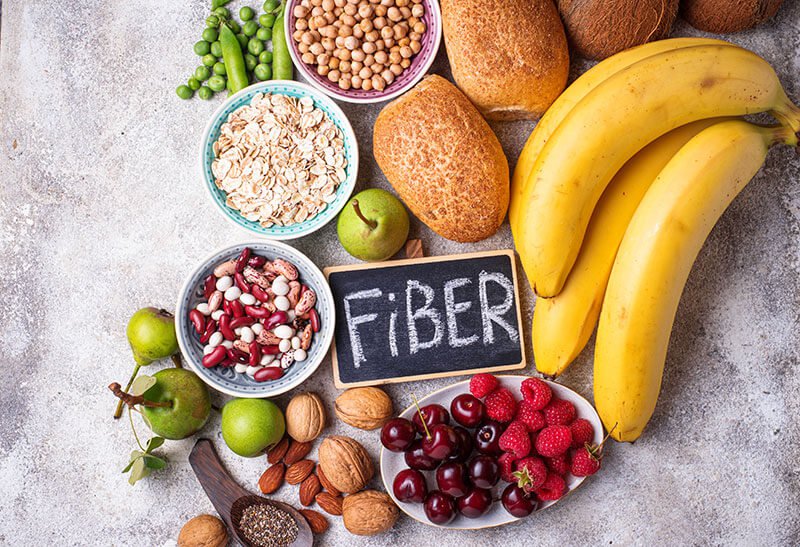
Sau khi mổ polyp đại tràng, bạn nên hạn chế bổ sung chất xơ như rau và trái cây chưa nấu chín.
3.3. Avoid Fats and Greasy You often have diarrhea after a bowel resection. Because your large intestine suddenly shortens, digested food doesn't have enough time to move (or have time to form solid stools) before leaving your body. Certain foods can make diarrhea worse, such as: fatty meats, butter and cream, fried foods, and greasy snacks like chips.
Diarrhea usually goes away after a few weeks. You can then enjoy these foods again from time to time.
Please follow the website: Vinmec.com regularly to update other useful information.
Diarrhea usually goes away after a few weeks. You can then enjoy these foods again from time to time.
Please follow the website: Vinmec.com regularly to update other useful information.
Please dial HOTLINE for more information or register for an appointment HERE. Download MyVinmec app to make appointments faster and to manage your bookings easily.
This article is written for readers from Sài Gòn, Hà Nội, Hồ Chí Minh, Phú Quốc, Nha Trang, Hạ Long, Hải Phòng, Đà Nẵng.

